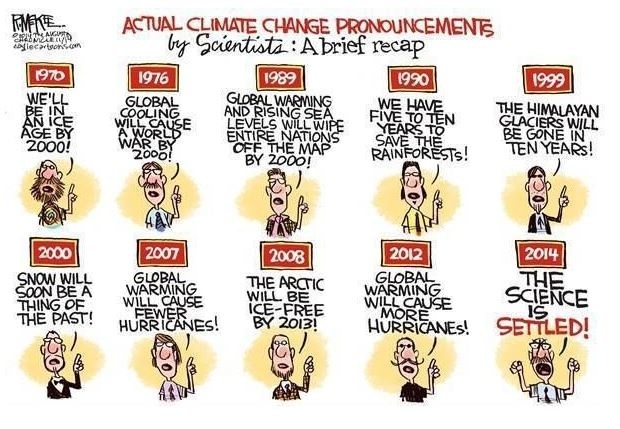I'm not trying to be abrasive or curt, but tell that to the people in Okinawa who eat primarily a whole food plant based diet, many of whom become centenarians and most live well into their 90s. Respectfully, your assessment/assumption that demand for medical care and medical costs would increase from adopting a plant based diet is rooted in ignorance of the subject. The longest living people and around the world eat primarily a plant based diet and grow old gracefully, and live active, quality lives right up to passing, without all of the medical care and costs associated with chronic disease management, life support and life extension that is common to most people on the Standard American Diet (SAD) in western civilization. The cost of medical care in the western culture is unnecessarily out of control.Sam Lowry said:A plant-based diet wouldn't come close to eliminating those diseases. It might lengthen lifespans a bit, but that would only increase the demand for medical care and worsen the crisis.TexasScientist said:Overall a pretty good article that fairly assesses the question in light of current data. Is global warming impacted by man? The answer without a doubt is yes. However, climate change on this planet is a given, regardless of human activity. The question is to what extent is change man induced? By some studies of global climate cycles, we are due to enter into a period of global cooling, or new ice age. To what extent will factors driving the warming trend mitigate factors of global cooling? On the other hand, should we do what we can to mitigate our impact on climate change, in light of a cost benefit analysis, as suggested in the article? Probably yes. As the article suggests, there are more critical issues of survivability which we are faced with that merit our attention, where we are failing. We are in the midst of what appears to be a continuance of a worldwide mass extinction of species that is increasing and is man induced. The end result of that has far more reaching consequences for disrupting an environment capable of sustaining our species. As pointed out in the article, our unabated population growth, and our destruction and disregard of ecosystems, other species and the overall environment is far more critical to our own survival. Climate is cyclical, and in many instances driven by factors we cannot control as of yet. However, we can do something about the environment, and protecting and rehabilitating ecosystems and other species.Sam Lowry said:Regarding cost and benefit:Osodecentx said:Fair answer, but you can't expect me to sign a blank check. I'd like to know the economic effects, cost v benefit, probability of success, etc. before signing onto your program.Jinx 2 said:First, let's get past the guys like Doc Holliday who think their observations of a melting ice cube in a water glass constitute authoritative scientific evidence that human activity--specifically, carbon emissions--isn't warming the planet really fast--to the point where some coastlines will be inundated and some island nations, like the Maldives, may no longer exist.Osodecentx said:What, specifically, do you recommend?Jinx 2 said:
What a 2C increase in average global temperature will do: https://www.nytimes.com/interactive/2018/10/07/climate/ipcc-report-half-degree.html?action=click&module=Top%20Stories&pgtype=Homepage
Along with the idiots who spout the 'climate has always changed" canard without also noting the fact that the planet has never before hosted the large a number of people, nor have the people living here had the technological means to heat and cool their homes and travel globally using carbon-based fuels. We are already at the point where we're going to kill the coral reefs, and we're also killing off the rain forests, which serve an important purpose in maintaining our atmosphere.
Then I'd like to hear recommendations from the guys with Ph.D.s who have concluded we're in big trouble about what we can do to stop emitting carbon at such high levels and what's not possible.
There are so many variables and so many things we don't know that scientists have already made one bad mistake--the effects are coming sooner rather than later. I will probably live at most another 30 years, and they will manifest during my lifetime. They are already in North Carolina and California.
Possibly the only positive in that is that all the conservatives who have claimed we're contending with normal variations in a planetary cycle are going to see how wrong they are before and realize how badly they've screwed their own kids and grandkids by their stubborness and selfishness. Or not. Some of these guys are hopeless.
As a small start, we COULD stop trying to resurrect the coal industry in the U.S. That's almost as dumb as building a wall.Regarding probability of success:Quote:
By the 2070s, the IPCC--the U.N. climate change panel--estimates that warming will cost between 0.2 and 2 percent of global GDP. This is certainly a problem, but not the end of world.
Speaking of climate change in catastrophic terms easily makes us ignore bigger problems, including malnutrition, tuberculosis, malaria and corruption. The World Health Organization estimates that climate change since the 1970s causes about 140,000 additional deaths each year, and toward the middle of the century will kill 250,000 people annually, mostly in poor countries. This pales in comparison with much deadlier environmental problems such as indoor air pollution, claiming 4.3 million lives annually, outdoor air pollution killing 3.7 million and lack of water and sanitation killing 760,000. Outside of environment, the problems are even bigger: Poverty arguably kills 18 million each year.
Every dollar spent on climate change could instead help save many more people from these more tractable problems. The current approach to subsidize solar and wind arguably saves one life across the century for every $4 million dollars spent--the same expenditure on vaccinations could save 4,000 lives.
https://www.washingtonpost.com/news/in-theory/wp/2016/09/19/when-it-comes-to-climate-change-lets-get-our-priorities-straight/?utm_term=.56605ed89254&noredirect=onQuote:
How much do temperatures actually increase when atmospheric carbon dioxide increases? Scientists express this relationship as a measure of "equilibrium climate sensitivity," defined as how many degrees average global temperature will increase as a result of doubling atmospheric carbon dioxide. Virtually all the climate models used in the IPCC's worst-case predictions of dangerous global warming presume a worst-case scenario equilibrium climate sensitivity (ECS) of 3.0 to 3.5 degrees Celsius. But leading IPCC scientists have concluded that if humans were responsible for all observed warming since 1971, the ECS would be around 2.0 degrees Celsius. And if humans are only responsible for about half of the observed warming, as the IPCC itself admits is quite possible, that implies an ECS closer to 1.0 degrees Celsius.
A reliable figure for ECS continues to elude our grasp, but with an ECS of 1.0 degrees Celsius, the case for sweeping reductions in carbon emissions is greatly weakened. At that level of climate sensitivity, even if carbon dioxide emissions continue to increase unabated, temperatures would increase significantly less than the stated goal of the IPCC's, which is warming of no more than two degrees Celsius by 2100. (This may explain why the Paris agreement moved the goalposts to a new goal of less than 1.5 degrees Celsius by 2100). But in that case, IPCC's worst-case scenario would then be non-catastrophic by the IPCC's own definition.
The policy implications are dramatic. Under this scenario, which lies well within the IPCC's forecast, even dramatic reductions in carbon dioxide emissions would have no measurable impact on temperatures. And the natural factors responsible for as much as half the recently observed warming would presumably continue warming the planet, oblivious to any reduction in carbon emissions.
The key point is this: The IPCC's latest "attribution statement" (extreme confidence that more than half the observed warming is due to humans) would be correct even if ECS is only 1.0 degrees Celsius and expected increases in carbon dioxide pose essentially no risk of catastrophic climate change.
https://www.the-american-interest.com/2016/03/31/twilight-of-the-climate-change-movement/
BTW - the meat and dairy industry around the world is responsible by far for more greenhouse gas emissions than the fossil fuel industry. What we eat is literally killing us and driving western health care costs through the roof. Adopting a whole food, plant based diet, would eliminate the excessive greenhouse gas emissions, and would eliminate most heart disease, strokes, Type 2 diabetes, and many cancers and chronic diseases common to Americans and those who eat the standard American diet. It would bring an end to the health care crisis and associated runaway medical costs we are experiencing in western civilization.
Most people in this country, and most physicians are not aware that most of the chronic debilitating illnesses that we have in our country today are caused by the bad diet we eat and the lack of quality nutrition (ie. the 1,000s of phytochemicals and micronutrients only found in plant based whole foods) we get in the SAD diet. Our bodies require the nutrients only found in whole foods to maintain a healthy immune system, in order to fight off and prevent heart disease, diabetes, obesity, embolic strokes, auto immune disorders and some cancers. Most physicians only get 2-3 classroom hours (not semester hours) in nutrition in medical school. What they learn essentially is how to treat acute symptoms and injuries from trauma, and how to diagnose chronic disease and how to manage the symptoms of chronic disease through prescription pharmacology. And, as patients begin to have side effects to the prescibed medications, they learn what additional meds to prescribe to manage the side effects from the prescribed meds. For instance someone with early stages of athlersclorosis may start out on two to three scripts. After about 2-3 years of that, they are taking as many as 8 pills per day to treat the underlying disease and the side effects from the prescribed medications.
There is a huge groundswell forming in the medical community (that is being resisted by big pharma) to incorporate prescribing a whole food plant based approach into their clinical practice. I'm not saying conventional treatments are not called for in some instances, and there is a need for those protocols where applicable and expedient. However, many chronic diseases can be prevented, and even reversed in as little as 4 weeks to 6 months on a strict whole food plant based diet. Physicians and cardiologists like Dr. Caldwell Esselstyn at the Cleveland Clinic, Dr. Dean Ornish at U. C. San Francisco, Dr. Joel Kahn, Dr. Baxter Montgomery, Dr. Garth Davis, Dr. Kim Williams, recent president of the American College of Cardiology, and Dr. Neal Barnard, president of Physicians Committee for Responsible Medicine, to name just a few are prominent physicians who have conducted research and/or are published on the subject and embrace a whole food plant based diet. Heart patients under their care are off their meds as early as 4 weeks to 6 months with no clinical signs of heart disease. Before and after angiograms of patients show complete reversal, with no arterial occlusions in 12 month to 24 month follow ups after initiating a dietary approach.
Similarly, Type 2 Diabetes can be prevented and even reversed, as many other chronic diseases. Dr. Neal Barnard has conducted clinical trials that are peer reviewed and published, demonstrating that diabetes can be prevented and reversed in patients through a dietary approach, weaning patients completely off of medications like insulin and metformin within weeks to a few months.






 [/url][/img]
[/url][/img] [/url][/img]
[/url][/img]